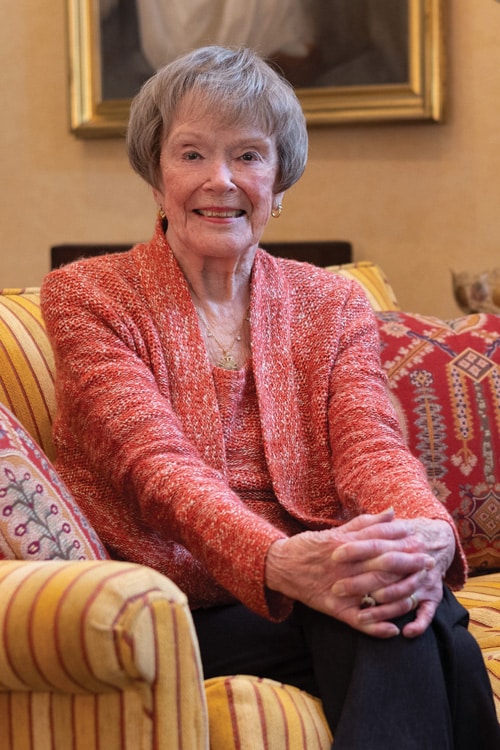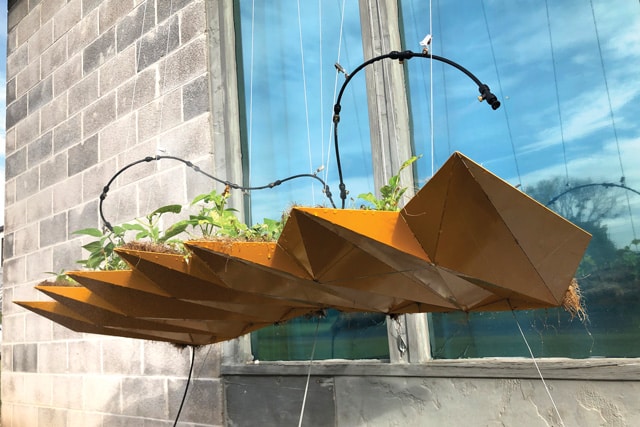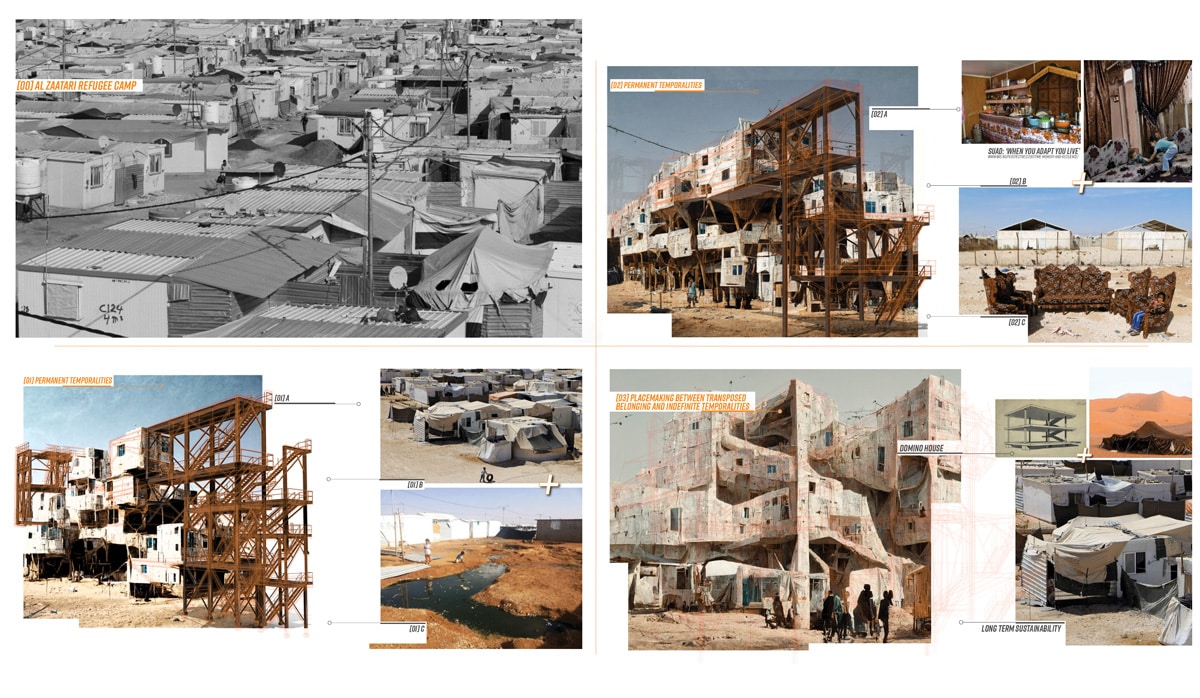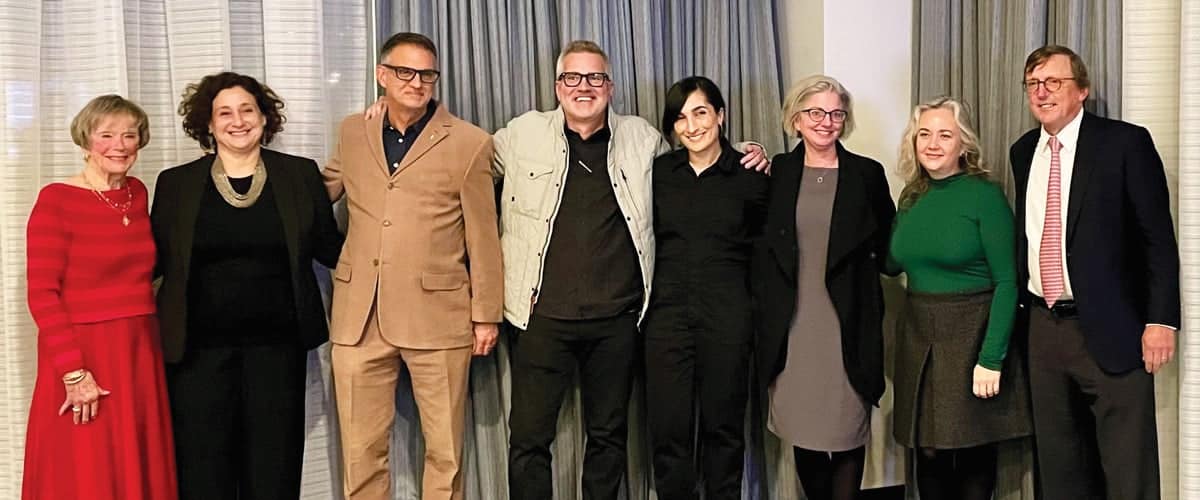

When Libba Wall (’59) established a faculty support fund in the College of Architecture and Design, she never imagined what it would spark.
With a great-grandfather who established Southern icon White Lily Flour in Knoxville in the late 19th century, Libba Wall (’59) and her family are deeply invested in the Knoxville community. Family connections partly led her to establish the James Johnson Dudley Architecture Faculty Scholar Award Endowment for the College of Architecture and Design at the University of Tennessee, Knoxville.“I named the award after my son, who studied architecture at UT and now practices in Charlotte [North Carolina],” said Wall. “I also have a stepson who works in the college, so I wanted to support the place that’s supported my family.”
From refugee camps to your city park—the research enabled by the Dudley Faculty Award addresses the full gamut of human experience through the physical spaces we inhabit.
“I supported faculty research because it not only enables innovations that benefit our world, but it also gives opportunity to students to assist and learn from their professors’ research,” said Wall. “As an endowment, the award will go on doing that in perpetuity.”
Researching the Impact of Faculty Support
Wall and her family met over dinner last fall with several faculty members who shared how they and their research benefited from the endowment.
“The impact of the Dudley award on my career is substantial,” said Jennifer Akerman, associate professor of architecture. “I’ve been able to leverage my research into writing and presentations to share it with a broader audience, and I’m developing a proposal for a book called Living Architecture. During my term as a Dudley Scholar, I also received tenure and promotion. I am very thankful to the Dudley and Wall families for their generous gift.”
She explained that the award allowed her to focus on her research with the support she needed. With the funds, she was able to create prototypes, develop course offerings, and bring in students to collaborate on her work.
“Living architecture argues that we should think of buildings as ecosystems,” said Akerman. “Rather than designing and detailing the building as an exquisite object, architects should design for its animating agents.”

Akerman’s urban micro-farm prototype, STELLA, a product of her research in living architecture.

A student prototype of a building component based on living architecture.
The support from the Dudley award came at an integral time in my academic career… It allowed me to investigate a side of design that has gone somewhat unacknowledged and cater to the needs of an ever-growing and underrepresented population.
– Rana Abudayyeh, Assistant Professor

This series of images show how this deployable structure might be adapted by the residents, stabilizing vertical growth while creating spaces on the ground that can be used as markets and community gathering spaces.
Rana Abudayyeh, assistant professor of interior architecture, applies a similar perspective to her research on refugee camps, focusing her studies on her home country of Jordan where the proportion of refugee-to-native population is one of the highest in the world.
“I’m working on a chapter for Informality and the City titled, ‘Pop-up Cities: Heterotopias Between Transience and Resilience,’ which focuses on refugee camps as cities that develop rapidly and persist into resilient settings that sustain generations of refugees,” said Abudayyeh. “Within the complex realities of these camps, in terms of design, I seek to answer what could be deployed in such sites preemptively to accommodate the establishment of various configurations for living that can fluctuate and change.”
Funds from the Dudley endowment allowed her to answer that question with her own camp designs.
Recently, she received a Teaching Excellence Award from the Interior Design Educators Council for how she integrated her research into the classroom and helped students see through the interdisciplinary lens she uses to address one of the grand challenges of our world.
“The support from the Dudley award came at an integral time in my academic career, enabling research that helped me as a tenure track professor,” said Abudayyeh. “Most importantly, it allowed me to investigate a side of design that has gone somewhat unacknowledged and cater to the needs of an ever-growing and underrepresented population.”
Discovering Wall’s True Legacy
Wall had no idea her gift would spark so much.
“I was impressed by all the faculty who shared with me that evening,” said Wall. “The diversity of interests and the depth of the personal connection they had to their work was truly moving. I was moved to know my gift was helping them do so many wonderful things in their careers and for the college and its students and for others around the world.”
The dean of the college, Jason Young, echoed the many expressions of gratitude shared that night.
“Faculty support like the Dudley award is necessary in order to enable and empower the breakthrough research illustrated here tonight,” said Young. “Productive faculty research in turn enables student development. This endowment is one of the few faculty awards in our college and its impact clearly demonstrates that our faculty, their research, and student success depend on it.”

Libba Wall with all six Dudley Faculty Scholars and her son, James Dudley, during the fall research presentation. From left to right: Libba Wall, Avigail Sachs, Ted Shelton, Brian Ambroziak, Rana Abudayyeh, Jennifer Akerman, Liz Teston, and James Dudley.
Dudley Faculty Scholars:
- Ted Shelton (2012–14)
- Brian Ambroziak (2013–15)
- Avigail Sachs (2015–17)
- Liz Teston (2017–19)
- Jennifer Akerman (2019–22)
- Rana Abudayyeh (2021–23)
